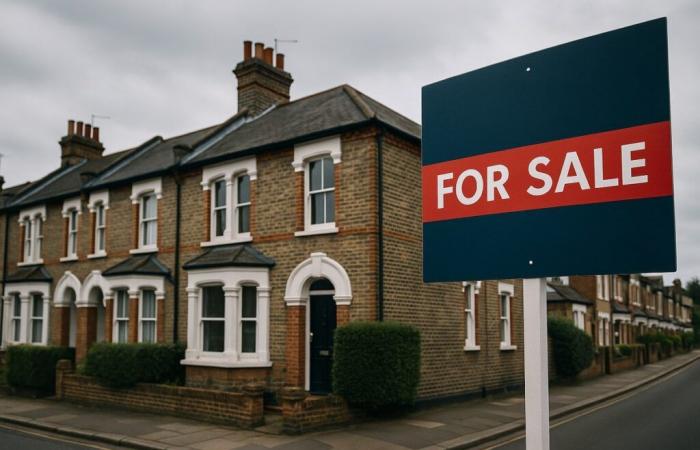Is housing growth in the United Kingdom coming to an end?
For decades, in the United Kingdom it was taken for granted that housing prices could only uploadto the point of planning retirement and public policies on that basis.
Since the 70s, each generation accumulated wealth through the real estate market. Buying was a safe bet, even with specific falls between sustained expansion cycles.
That logic led to the housing market to be worth more than 9 billion poundsaccording to Savills. But the concentration is evident: those over 60 years of age control 2.95 billionwhile less than 35 barely possess 600,000 millionwith high level of debt.
Recent falls have pushed the nominal growth trend to Lower level in 50 yearsand the real evolution has stagnated. The result is a more difficult access and lower housing mobility.
The lowest rates and political pressure could relive demand
Despite uncertainty, recent factors have reactivated activity. Mortgage approvals returned to their prepaandemics level and March registered a rise in 79% in transactionsaccording to HMRC.
The rebound is supported by better credit conditions and repressed demandalthough still limited to those who can really pay, which reduces the real effect of demographic pressure.
Analysts warn that the market is still tense. Although there is more interest, The affordability is still very lowand many buyers depend on high joint income or family aid.
The British government has resumed its usual impulse: deregulate the credit to encourage the market. The Elimination of loan limits on income and effort tests.
In the short term there could be a last rebound … but it won’t be like before
The models project that flexibility could increase the purchasing power to 20%which would result in a similar impulse in prices, if the rates continue to fall under 4%.
But that has a limit. If the global economic scenario deteriorates, especially in the US, any rebound could be brief. A recession would erase the profits immediately.
Meanwhile, the offer remains rigid. Most of the homes available are second -hand, and although the reforms to the planning system seek to unlock the construction, the effect will be slow.
The profitability of the rents rises, which could attract some lessors back. In 2021 the return was from 5,65%already at the end of 2024 already exceeds the 6,99%according to UK Finance.
The future of the market will depend more on salaries than bubbles
In the medium term, housing prices will tend to follow The rhythm of salariesrather than generating profitability above inflation as in previous decades.
For those who managed to buy, a brief rebound will be good news. But for those who are still out of the market, The chances of prices are really scarce.
The big question is whether the United Kingdom can stop depending on the real estate boom as an economic lever. The initial signals suggest not.
Descargo de responsabilidad: Toda la información encontrada en Bitfinanzas es dada con la mejor intención, esta no representa ninguna recomendación de inversión y es solo para fines informativos. Recuerda hacer siempre tu propia investigación.





